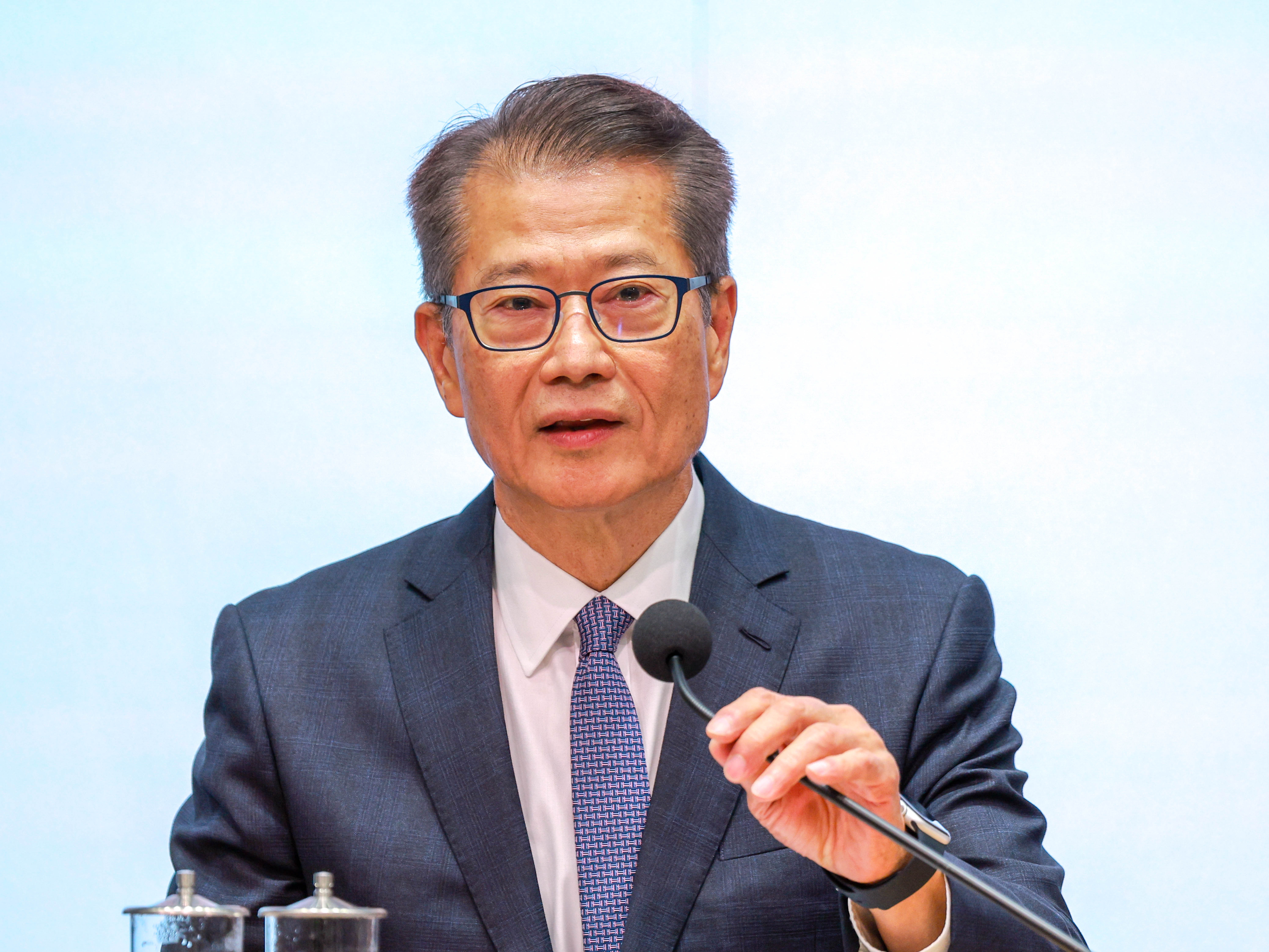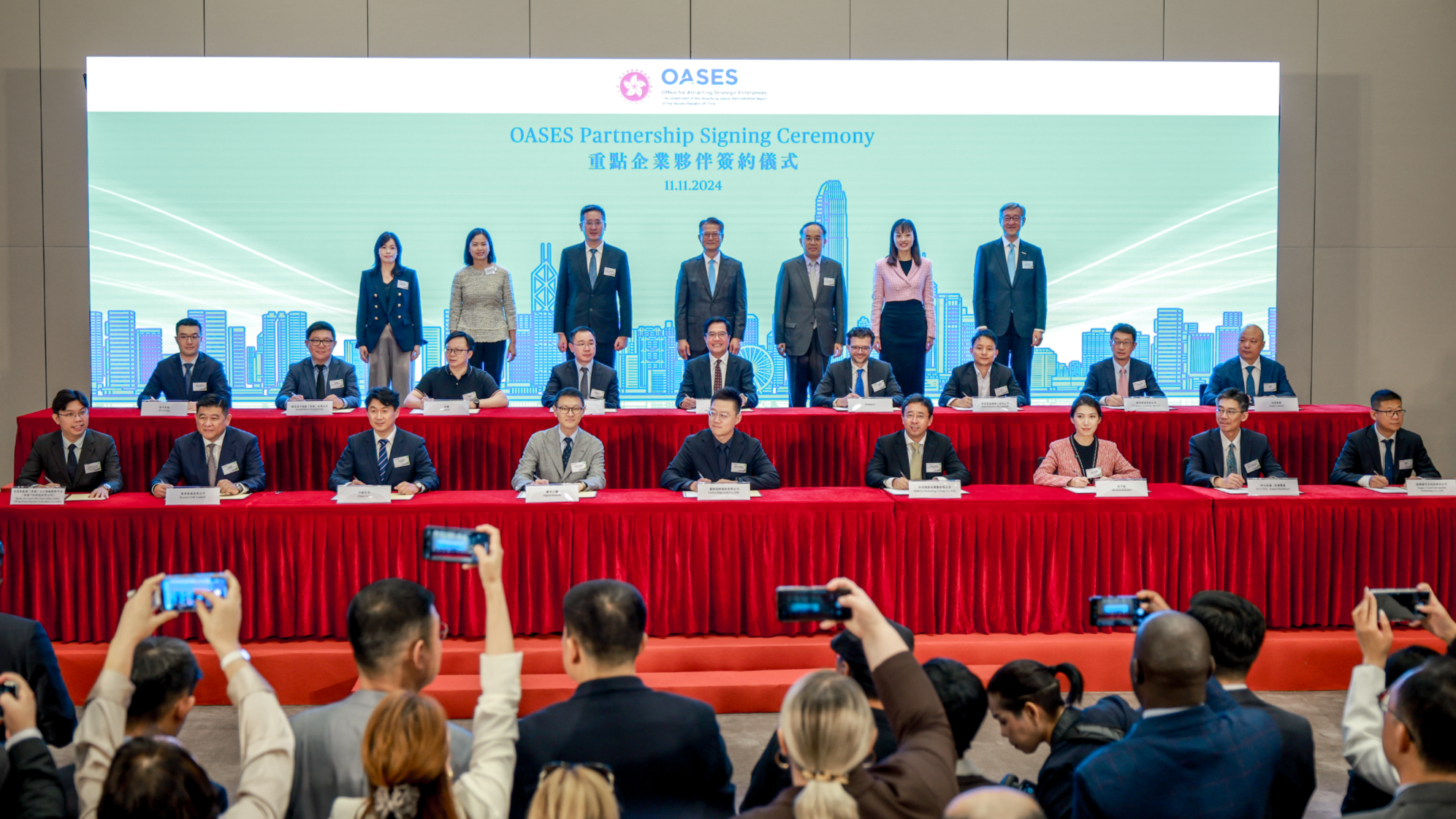
The Hong Kong Special Administrative Region’s arm responsible for attracting promising enterprises has introduced 84 cutting-edge technology companies to the city in the past two-and-a-half years — a move that’s expected to bring in about HK$50 billion ($6.37 billion) in investment in the coming years, Financial Secretary Paul Chan Mo-po said on Sunday.
Writing in his weekly blog, Chan said the companies are projected to create more than 20,000 jobs and occupy a combined 1.68 million square feet of space for technology, industrial, and commercial purposes.
Such efforts to draw enterprises and high-level professionals will help drive industrial transformation and create new growth momentum for the city’s economy, he said.
The Office for Attracting Strategic Enterprises, which went into full operation in December 2022, will soon unveil its fifth batch of more than 10 companies, bringing the total number of firms it has brought to the SAR to around 100.
Some of the incoming businesses are global leaders in the pharmaceutical sector, drawn by Hong Kong’s world-class healthcare infrastructure, strong research and development capabilities, as well as its access to the Guangdong-Hong Kong-Macao Greater Bay Area — a huge market of 87 million people.
Chan said these advantages, alongside collaboration across the Greater Bay Area in medical technology and clinical trials, have made Hong Kong an ideal launchpad for companies to expand on the Chinese mainland and Asia.
The HKSAR government’s push to establish an authority that registers drugs and medical devices under the “primary evaluation” approach has further boosted Hong Kong’s appeal, he noted. This would allow direct approval based on clinical data, without relying on other drug regulatory authorities, and fast-track the clinical use of innovative medicines and technologies.

Beyond the OASES, Hong Kong Investment Corporation — the SAR government’s “patient capital” fund — is leveraging its regional and global networks to attract tech companies from the mainland and overseas, besides nurturing local startups.
ALSO READ: HKIC forms its first strategic partnership in medical field in 2025
HKIC has invested in more than 100 projects, with more than 10 companies either filing or preparing to file for listings on the Hong Kong stock market, Chan said.
According to the finance chief, the corporation, specializing in investments in early-stage, hard-tech companies, has a longer view on financial returns and the capabilities to mobilize market capital. For every Hong Kong dollar it invests, more than five Hong Kong dollars in private capital has followed, including those from sovereign funds, pension funds and family offices.
Chan said the city’s efforts to attract businesses and professionals are advancing at an accelerated pace. This has not only provided investment and high-quality employment opportunities, but also strengthened local innovation and technology ecosystem. Moreover, it will drive industrial upgrades and empower urban management to enhance the quality of life for residents.
The Hong Kong University of Science and Technology and HKIC-backed SmartMore, for instance, launched the Von Neumann Institute in May to advance artificial intelligence research.
In July, Soy-Sky FarmTech, in which HKIC has also invested, teamed up with The Hong Kong Polytechnic University to establish a joint lab focused on soy-based functional foods and the translation of sustainable agricultural technologies.
Meanwhile, some firms introduced by the OASES have been testing their advanced initiatives in Hong Kong, such as sensing systems and autonomous driving technologies, which Chan said would pave the way for a smarter and more efficient city.
READ MORE: Chan: More tech firms to cultivate AI talent in Hong Kong
Separately, Chief Executive John Lee Ka-chiu said on his social media page on Sunday that as of the end of July, the total number of registered local companies exceeded 1.5 million, and the number of registered non-local firms exceeded 15,000, both reaching record highs.
From January 2023 to July this year, Invest Hong Kong – the SAR government’s investment promotion arm – assisted 1,333 companies to establish or expand their businesses in Hong Kong, attracting HK$174 billion in first-year direct investment and creating over 19,000 new jobs, Lee pointed out.
The government will continue to work with the business communities on the mainland and the HKSAR to explore more promising emerging markets and expand business opportunities for local and mainland enterprises to balance their investment portfolios and mitigate geopolitical challenges, he added.


